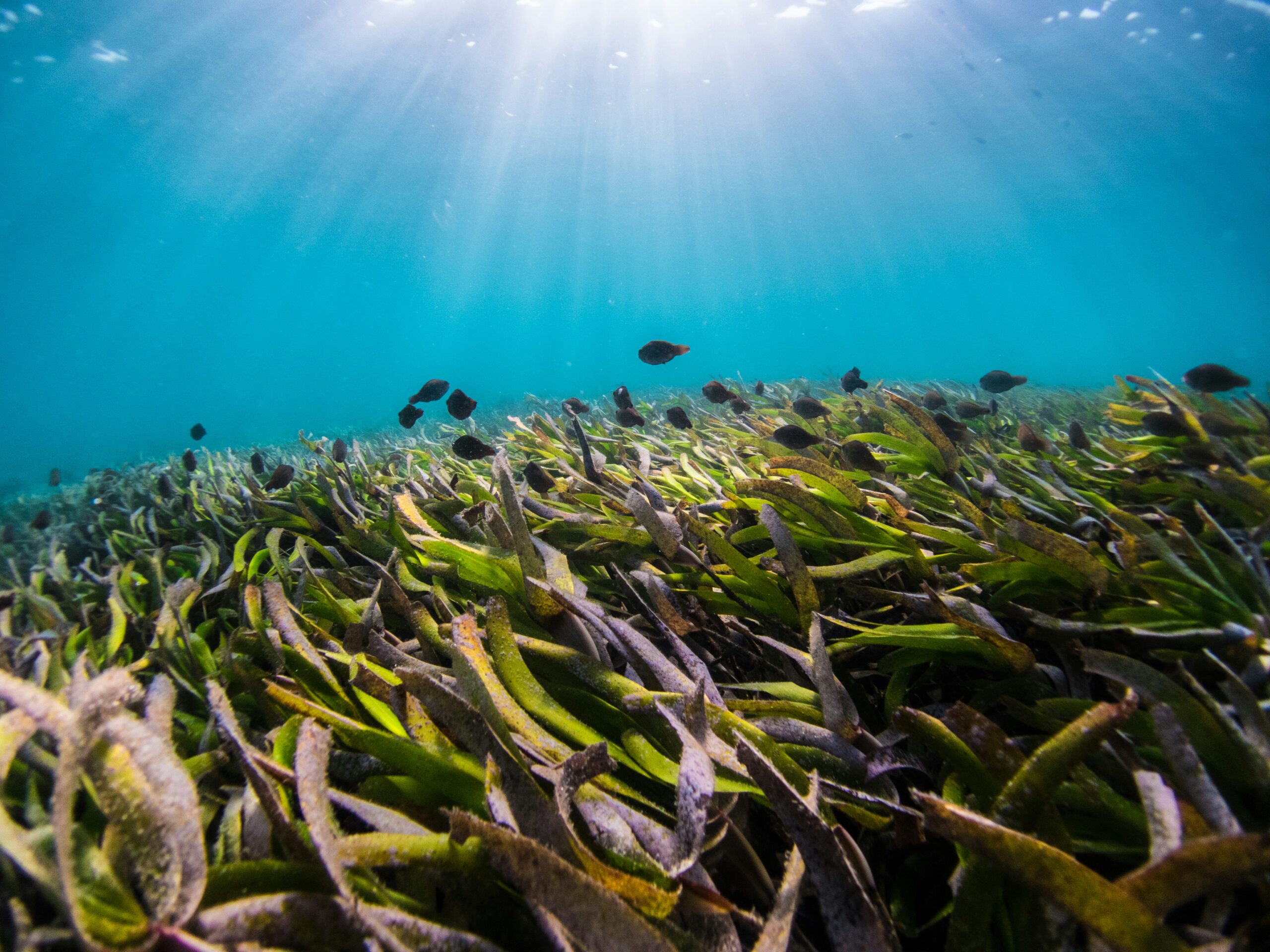Photo of a Seagrass Meadow Benjamin Jones
A major new report by WWF Mediterranean warns that the region’s iconic seagrass meadows—vital to marine biodiversity and climate stability—are under severe threat from widespread damage caused by anchoring vessels. The study highlights the scale and urgency of the crisis, estimating that in 2024 alone, more than 179,000 boats anchored in Posidonia oceanica meadows across the Mediterranean, damaging over 50,000 hectares of these sensitive underwater ecosystems.
Often called the “blue forests” of the sea, Posidonia oceanica meadows play a crucial role in absorbing carbon, protecting coastlines from erosion, and providing shelter for countless marine species. But these meadows are slow-growing, taking decades or even a century to recover from mechanical damage. The WWF study shows that nearly 60% of the impact is caused by larger vessels over 24 meters in length, with anchoring hotspots identified in coastal zones of Italy, Spain, Türkiye, Greece, and France. In several locations, more than half of local seagrass beds are affected.
The ecological consequences are alarming. These meadows store immense amounts of blue carbon—carbon captured and held in marine ecosystems—making them a key natural defense against climate change. WWF estimates that damage to seagrass beds has already led to a 30% drop in carbon storage capacity in affected areas. Moreover, the economic value of the ecosystem services provided by these meadows, including carbon sequestration, fisheries support, and tourism, exceeds €4 billion annually. Restoration, where possible, is costly—up to €250 per square meter—and often impractical on a large scale.
WWF is calling for immediate policy action. The organisation urges Mediterranean nations to ban anchoring over Posidonia meadows for vessels longer than 15 meters, to expand eco-mooring infrastructure, and to establish protected no-anchor zones. It also emphasises the importance of coordinated maritime spatial planning across borders to ensure long-term protection and resilience of these vital habitats.
The report arrives just ahead of the UN Ocean Conference in Nice (9–13 June), where Mediterranean marine protection is a key item on the agenda. WWF hopes the findings will prompt governments, port authorities, and the boating industry to prioritise seagrass conservation. “Anchor damage is slow to heal, with scars taking even more than 100 years to recover,” said Mauro Randone, WWF Mediterranean Ecosystems Manager. “Protection and improved management represent the most effective ways to safeguard these critically important ecosystems.”
The fate of the Mediterranean’s seagrass meadows now hinges on whether nations are willing to shift from reactive damage control to proactive conservation. For these ancient and irreplaceable ecosystems, time is running out.
